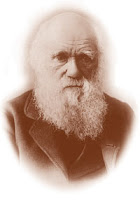Why Do We Invoke Darwin?
Darwin's theory of evolution offers a sweeping explanation of the history of life, from the earliest microscopic organisms billions of years ago to all the plants and animals around us today.
Darwin's theory of evolution offers a sweeping explanation of the history of life, from the earliest microscopic organisms billions of years ago to all the plants and animals around us today. Much of the evidence that might have established the theory on an unshakable empirical foundation, however, remains lost in the distant past. For instance, Darwin hoped we would discover transitional precursors to the animal forms that appear abruptly in the Cambrian strata. Since then we have found many ancient fossils – even exquisitely preserved soft-bodied creatures – but none are credible ancestors to the Cambrian animals.
Despite this and other difficulties, the modern form of Darwin's theory has been raised to its present high status because it's said to be the cornerstone of modern experimental biology. But is that correct? "While the great majority of biologists would probably agree with Theodosius Dobzhansky's dictum that 'nothing in biology makes sense except in the light of evolution,' most can conduct their work quite happily without particular reference to evolutionary ideas," A.S. Wilkins, editor of the journal BioEssays, wrote in 2000.1 "Evolution would appear to be the indispensable unifying idea and, at the same time, a highly superfluous one."
I would tend to agree. Certainly, my own research with antibiotics during World War II received no guidance from insights provided by Darwinian evolution. Nor did Alexander Fleming's discovery of bacterial inhibition by penicillin. I recently asked more than 70 eminent researchers if they would have done their work differently if they had thought Darwin's theory was wrong. The responses were all the same: No.
I also examined the outstanding biodiscoveries of the past century: the discovery of the double helix; the characterization of the ribosome; the mapping of genomes; research on medications and drug reactions; improvements in food production and sanitation; the development of new surgeries; and others. I even queried biologists working in areas where one would expect the Darwinian paradigm to have most benefited research, such as the emergence of resistance to antibiotics and pesticides. Here, as elsewhere, I found that Darwin's theory had provided no discernible guidance, but was brought in, after the breakthroughs, as an interesting narrative gloss.
In the peer-reviewed literature, the word "evolution" often occurs as a sort of coda to academic papers in experimental biology. Is the term integral or superfluous to the substance of these papers? To find out, I substituted for "evolution" some other word – "Buddhism," "Aztec cosmology," or even "creationism." I found that the substitution never touched the paper's core. This did not surprise me. From my conversations with leading researchers it had became clear that modern experimental biology gains its strength from the availability of new instruments and methodologies, not from an immersion in historical biology.
When I recently suggested this disconnect publicly, I was vigorously challenged. One person recalled my use of Wilkins and charged me with quote mining. The proof, supposedly, was in Wilkins's subsequent paragraph:
"Yet, the marginality of evolutionary biology may be changing. More and more issues in biology, from diverse questions about human nature to the vulnerability of ecosystems, are increasingly seen as reflecting evolutionary events. A spate of popular books on evolution testifies to the development. If we are to fully understand these matters, however, we need to understand the processes of evolution that, ultimately, underlie them."
In reality, however, this passage illustrates my point. The efforts mentioned there are not experimental biology; they are attempts to explain already authenticated phenomena in Darwinian terms, things like human nature. Further, Darwinian explanations for such things are often too supple: Natural selection makes humans self-centered and aggressive – except when it makes them altruistic and peaceable. Or natural selection produces virile men who eagerly spread their seed – except when it prefers men who are faithful protectors and providers. When an explanation is so supple that it can explain any behavior, it is difficult to test it experimentally, much less use it as a catalyst for scientific discovery.
Darwinian evolution – whatever its other virtues – does not provide a fruitful heuristic in experimental biology. This becomes especially clear when we compare it with a heuristic framework such as the atomic model, which opens up structural chemistry and leads to advances in the synthesis of a multitude of new molecules of practical benefit. None of this demonstrates that Darwinism is false. It does, however, mean that the claim that it is the cornerstone of modern experimental biology will be met with quiet skepticism from a growing number of scientists in fields where theories actually do serve as cornerstones for tangible breakthroughsPhilip S. Skell
Darwin's image - Courtesy of the Library of Congress
========================================
Philip Skell's answer to critics on his Scientific views. Here is a partial quote:
"Evolution is not an observable characteristic of living organisms. What modern experimental biologists study are the mechanisms by which living organisms maintain their stability, without evolving. Organisms oscillate about a median state; and if they deviate significantly from that state, they die. It has been research on these mechanisms of stability, not research guided by Darwin’s theory, which has produced the major fruits of modern biology and medicine. And so I ask again: Why do we invoke Darwin?"
An Example of the Oscillation Observed In Experimental Biology which Philip Skell is referencing - Darwin's Finches
Charles Darwin brought back several samples of Finches collected from his voyage to Galopagos Islands. While he called or labeled them Finches, not all were finches, but he never knew that. Take a look at an explanation Jonathan Wells, microbiologist with two Ph.D.s (from Berkeley and Yale) commented on regarding the iconic Darwin Finches:
"Although the Galápagos finches had little impact on Darwin’s thinking [he doesn’t even mention them in The Origin of Species], biologists who studied them a century later called them “Darwin’s finches” and invented the myth that Darwin had correlated differences in the finches’ beaks with different food sources (he hadn’t). According to the myth, Darwin was inspired by the finches to formulate his theory of evolution, though according to historian of science Frank Sulloway “nothing could be further from the truth.”
Author, Jonathan Wells
Yet this myth of Darwin's Finches as an Evolutionary Icon still continues down to this day in all the High School and College textbooks even though Darwin himself never mentioned them in his famous Origin of the Species. Those collected finches had little impact on Darwin’s thinking, in fact it was the future biologists who studied them a century later (around 1940s) who called or labeled them “Darwin’s finches” and invented the myth that Darwin had correlated differences in the finches’ beaks with different food sources (he hadn’t). According to the myth, Darwin was inspired by the finches to formulate his theory of evolution, although according to historian of science Frank Sulloway “nothing could be further from the truth.” Seriously, look at the link below:
Nature: The Legend of Darwin's Finches
Decades later two evolutionary biologists, a British couple named, Peter and Rosemary Grant, spent 40 years studying those iconic Darwin Finches, claiming to have seen evolution in action. But the reality is nothing of the sort. What they found is what Philip Skell made comment on about experimental biology:
"Organisms oscillate about a median state; and if they deviate significantly from that state, they die,"
So 40 years in personal self-sacrifice and research and all that was really observed was mere back and forth oscillation where change, happened when there was either drought (creating lack of resources) or El Nino type of floods (creating abundance). This was NOT evolution in action. It truly does take blind unquestioning faith to believe that it was. Be careful when refusing to see both sides of a scientific discussion.
I have a certain strategy which helps me get through many scientific research papers where the term evolution or Darwin are used. When I read a research paper and see that the subject is referenced, I find it helpful to view it as one of those annoying Google Ads that pops up on a Youtube channel I'm viewing. It's something I briefly have to put up with temporarily, but after some seconds I can move on by clicking the Skip Ad button. The same has to be said for the recent Torrey Pines 'genetic rescue' project research paper where the reference to 'evolution' was continually used. But the fact was there was no observed evolution, there was merely the experimental example of crossbreeding of two populations of Torrey Pines (mainland & island) both of which had identical Torrey Pine DNA. The only differences being their respective epigenomes where the same genes were being expressed differently as a result of the different geographical locations with unique environmental cues. I wouldn't call either experiment (The Peter & Rosemary Grant or Jill Hamilton experiments) a total waste of time or the results fruitless. I've personally done numerous experiments myself where the results were not as I had wished because they failed the desired outcome. Looking back at the disappointments I learned from them. Remember that no experiment is ever a complete failure; it can always serve as a bad example or wrong direction to take. Below here is the link back to the Torrey Pines Project post.
================================
Back to main article: Earth's Internet: "Sierra Club Article about Torrey Pines: "Iconic, and Almost Extinct" - Well, Maybe Not!"






No comments:
Post a Comment
Thanks for visiting and stopping by with your comments!
I will try to respond to each comment within a few days, though sometimes I take longer if I'm too busy which appears to be increasing.